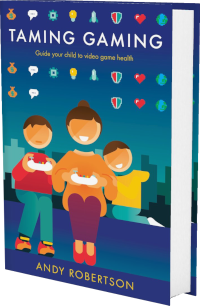 Android
Android iOS
iOS Mac
Mac Switch
Switch Wii
Wii Wii U
Wii U PC
PC PS4
PS4 PS5
PS5 Xbox One
Xbox One Xbox X|S
Xbox X|SWe've documented 34 accessibility features for Lego Star Wars: The Skywalker Saga, including Fully Voiced (Or No Speech), Large Subtitles, Control Assists, Custom Difficulty and No Repeated Pressing. Its accessibility is strongest in Controls and Navigation but it also has features in Getting Started, Reading, Visual, Audio and Difficulty to reduce unintended barriers.
This report is created with input from accessibility experts and the player community to help people find games that have the accessibility features they require. Once you have found potential games on the database, there are excellent specialist accessibility sites that offer in-depth reviews to guide your purchasing decisions.
Our accessibility examiner, Andy Robertson, first checked Lego Star Wars: The Skywalker Saga accessibility 2 years ago. It was re-examined by Ben Kendall and updated 13 months ago.
 Accessibility Notes
Accessibility Notes
- Automatic Health Recovery: Health automatically recovers over time to make combat easier.
- Fall Recovery: Falling onto hazardous areas returns you to safety.
- Aim Assist: Assistance hitting targets when using ranged weapons. This can be Target Lock-On, Near-Target Slowdown, On-Target Slowdown, or Homing Shots.
You can opt to aim with toggle rather than a hold. You can opt to auto-complete Quick Time events.
As with other Lego titles, there is a minor stud/coin penalty for losing all your health and respawning but player progress is never lost when dying/losing all health.
The game is generally low pressure, however, there are some time-sensitive puzzles, a few in Story Mode but more in the hub-world areas that require switches to be hit within a certain time frame. Your progress is tracked within a level but to save this permanently you need to complete the level which may require 10-15 minutes of play. When exploring the hub worlds the game will periodically auto-save when you are exploring or collecting items.
Waypoint arrows are enabled by default to always lead you to your currently tracked Objective, with "breadcrumb" trails aiding the player to the quickest route to reach the Objective. Navigation assist enables pressing down the Right Stick to turn the camera towards the closest Waypoint Arrow leading to your current objective.
There are visual prompts in the game if you need a certain character to do something the game displays the character you require to use. This now displays the specific character in your party you need (if you have them) rather than just the character class like in previous Lego games.
You can enable and resize hints and tips. Objectives are always displayed in the top corner of the game as default and can be toggled On/Off with the below options:
- Always On: Current objective text will always display.
- New Only: Objective text will appear for a few seconds when it changes.
- Off: Disables objective text.
When you hit enemies there is audio and visual feedback. A health bar over their head is displayed to show damage. The game displays the text, "Blocked" and similar when enemies avoid your attacks. In dogfights in ships, enemies are highlighted with lock-on red markers. You can turn off motion blur and camera shake. Some areas, such as the throne room on Exegol, which are mandatory to visit to beat the story, have flashing effects that can't be disabled.
With certain characters, if you look at interactive objects, they can be outlined in either red or blue depending on the character. By upgrading the bounty hunter class, you can see the red outlines of enemies through walls, but to unlock this you need to play for a significant amount of time without it.
Text is generally clear, although text in menus (like the Upgrade selection) is light blue text on a dark blue background and less clear. Some of the text in these menus is also quite small. There is no menu narration. Subtitles are displayed for all dialogue and can be sized to be extra large. In-game speech bubbles can also be adjusted to be large. Keywords are highlighted using colour. In the story, there are a few objects you need to identify or use that are quite small, with significantly more in the optional extra challenges to unlock characters and extras.
 Game Details
Game Details
Release Date: 05/04/2022
Out Now: PC, PS4, PS5, Switch, Xbox One and Xbox X|S
Skill Rating: 8+ year-olds
Players: 1-2
Genres: Action, Adventure (Fighting, Narrative, Platform, Puzzle, Shooting and Traversal)
Accessibility: 34 features
Components: 3D Third-Person, Blocks and Cartoon
Developer: TT Games (@TTGames)
Costs: Purchase cost, In-Game Purchases and In-Game Pass
 Controls
Controls
We've documented 10 accessibility features for Controls in Lego Star Wars: The Skywalker Saga which deal with how you control the game, different options for alternative inputs and whether you can remap these settings to suit your needs.
Gamepad
Can play with the following:
Multiple Buttons & Two Sticks: Can play with multiple buttons and two sticks.
Mouse And Keyboard
Can play with the following:
Keyboard Alone: Can play with just the keyboard.
Mouse and Keys: Can play with mouse and multiple keys.
Remap Controls
Can customise the controls for the game as follows:
Remap Buttons: Can re-map all buttons so that you can use alternatives that better suit your play.
Remap Mouse and Keyboard: Can remap mouse and keyboard key bindings, on systems that support these controls.
Invert X/Y Axis: Can invert the direction required to control looking and aiming. This enables you to match your instinctive orientation when looking.
Button Combinations
Specific button operation required to play
Rapid Repeated Pressing Optional: Quick, repeated button pressing (more than 2 times a second) is not required, can be skipped or switched to holding a button to trigger a repeated action.
Controller Vibration
Vibration Optional: Controller vibration not used in the game or you can disable it.
Informative Vibration: Controller vibration indicates events or interactions in the game, echoing visual and audio cues. This can provide additional information about progress, approaching enemies or hitting a target.
Sensitivity
You can adjust
Adjust Mouse/Stick/Touch Sensitivity: Adjust how sensitive touch/mouse/stick controls are.
Similar Games With More Accessibility Features for Controls
If you want to play Lego Star Wars: The Skywalker Saga, but it doesn't offer the Controls accessibility features you require, this similar game extends the Controls accessibility:
- Criminals Within (13 Controls Features)
 Difficulty
Difficulty
We've documented 1 accessibility feature for Difficulty in Lego Star Wars: The Skywalker Saga which deals with how you can adjust the challenge of play, and whether this is locked once chosen or can be adjusted as you play.
Difficulty Options
Customise Difficulty: Customise different aspects of the game to create a challenge of an appropriate level. Adjusting elements individually enables you to tailor gameplay to suit your needs and style of play.
Similar Games With More Accessibility Features for Difficulty
If you want to play Lego Star Wars: The Skywalker Saga, but it doesn't offer the Difficulty accessibility features you require, these similar games extend the Difficulty accessibility:
- Star Wars Jedi: Survivor (3 Difficulty Features)
- Criminals Within (2 Difficulty Features)
- Star Wars: Republic Commando (2 Difficulty Features)
- Starlink: Battle for Atlas (2 Difficulty Features)
 Getting Started
Getting Started
We've documented 5 accessibility features for Getting Started in Lego Star Wars: The Skywalker Saga which deal with what support is offered to get started with the game. This includes customising the experience when you first open the game via any onboarding processes it provides as well as tutorials and other assistance when you first start playing.
Assistance Getting Starting
These features aid your play of the game in terms of cognitive load on learning controls, dealing with pressure and coping with the environment and challenges.
Tutorials: There are helpful tutorials and instructions on how to play. Information is provided in a timely manner, with appropriate level of detail.
View Control Mapping: You can view a map of controls during play. This clearly displays the mappings of actions to buttons/keys/mouse/keyboard without having to leave the game. This includes games that always display buttons to press during play.
Assistance With Controls: The game can automatically assist with aiming, steering, reloading, jumping, running etc. This reduces the challenge of certain aspects of play to remove barriers and make control of characters more accessible.
Assistance For Progressing
These features aid your progress through the game offering different ways of maintaining your progression.
Bank Progress With Frequent Checkpoints: If you fail you can retry that level or aspect of the game without losing a lot of progress (less than 5 minutes). This is often provided via Frequent Checkpoints combined with restarting without losing time, equipment or score.
Assisted Progress With Hints: The game notices if you get stuck (or you can press a button) and provides information to help you progress. This can offer hints or tutorials popping up during play. This includes hints after you have died, where it can suggest strategies or difficulty settings to adjust or offer to skip past problematic levels.
Similar Games With More Accessibility Features for Getting Started
If you want to play Lego Star Wars: The Skywalker Saga, but it doesn't offer the Getting Started accessibility features you require, these similar games extend the Getting Started accessibility:
- Criminals Within (8 Getting Started Features)
- Go Vacation (8 Getting Started Features)
- Mail Time (7 Getting Started Features)
- Star Wars Jedi: Survivor (7 Getting Started Features)
 Reading
Reading
We've documented 5 accessibility features for Reading in Lego Star Wars: The Skywalker Saga which deal with how much reading or listening comprehension is required, how well the game provides visual and audible access to the text and whether subtitles and captions are a good fit for purpose.
Reading Level
How much reading is required to play the game's main path or story and how complex the language is. The presence of voiced characters doesn't reduce this requirement, as it's recorded as a separate datapoint.
Moderate Reading: Moderate reading required. The quantity and complexity of reading are at a level that a high school student (14-year-old) would appreciate.
Subtitles
Large Clear Subtitles: Subtitles are large, clear and of good contrast. They are at least 1/20 (46 pixels on 1080 screen) the height of a landscape screen and at least 1/40 height on portrait screens, or can be adjusted to be. We base this on the full line-height, including the space above and below the letters. Considered separately from the general text of the game, the subtitles are large, clear and of good contrast.
All Speech Subtitled (Or No Speech In Game): All spoken content has subtitles, or there is no speech in the game. This means there is no requirement to hear spoken dialogue or narrative to play the game.
Captions
Speaker Indicator and their Tone: Textual captions indicate who is speaking and their tone (or there is only ever one person speaking). This can also be indicated visually in the game with character icons or character expressions with text in speech bubbles next to the person speaking.
Voice Acted
All Dialogue is Voice Acted (Or No Speech In Game): All of the game dialogue and narrative can be voiced, or there is no speech in the game. This means there is no requirement to read the dialogue and narrative text to play the game.
Similar Games With More Accessibility Features for Reading
If you want to play Lego Star Wars: The Skywalker Saga, but it doesn't offer the Reading accessibility features you require, these similar games extend the Reading accessibility:
- Sackboy: A Big Adventure (7 Reading Features)
- Knack (7 Reading Features)
- New Super Lucky's Tale (7 Reading Features)
- Star Wars Jedi: Survivor (6 Reading Features)
 Navigation
Navigation
We've documented 8 accessibility features for Navigation in Lego Star Wars: The Skywalker Saga which deal with how the game provides guidance and assistance to navigate its worlds. These are only for games that have traversal and exploration in 2D and 3D spaces.
Clarity
Large Clear Navigation: The in-game navigation and maps are clear to read. They offer large text and offer markers that are large and of high contrast. Where text or information is small, there are settings to zoom-in and increase visibility.
Clear Mission Objectives: The game provides clear, structured missions with directional guidance and advice on which can be attempted next. This also indicates (ideally on maps where they are provided) which missions can't be attempted because you do not have the appropriate items yet.
Visual Directional Cues: Additional in-game visual cues that signpost where to go next and how close you are to arriving. This can be with camera movement to focus on your destination or important items. It can use light, breadcrumb trails, in-world pointers to identify your mission's target location.
Head-Up Display
Head-Up Display Navigation: Indication of where to go next with overlaid arrows, minimaps and waypoint markers. This supplements in-game visual and audible cues with additional guidance about where you are and where you need to go.
Adjust Head-Up Display: Resize and adjust the content of the head-up display. This enables it to be made more visible. It can also enable the removal of too much information that can be distracting or confusing.
Game Map: View a map of the game world during play, with the landscape, points of interest and missions highlighted throughout the entire game. This enables the orientation of the player and the world, confirming a direction of movement and the location of destinations or points of exploration.
Menu Navigation
Menu Audio Cues: Navigating menus provide an audio cue for each selection.
Digital Menu Navigation: Menu choices with Gamepad can be made without using an analogue stick to guide a cursor to a selection. For example, using D-Pad, buttons or the Stick to change menu selection in a single action.
 Visual
Visual
We've documented 4 accessibility features for Visual in Lego Star Wars: The Skywalker Saga which deal with how you can adjust the visuals to suit your needs, and offer additional information if you can't hear the game.
Visual Distractions
No Screen Shake: No screen shake effect or it is included but it can be disabled. This includes the absence of screen shake for dramatic effect as well as to indicate hits on a target.
Audio Cues for Visual Events
Audio Cues for Visual Events: Audio is provided to indicate visual events. Game events or progress highlighted by visual icons, effects or animations are also accompanied by audio to signify that progress. This is useful for blind players.
Menu Audio Cues: Navigating menus provide an audio cue for each selection.
Motion Sickness Friendly
Motion Sickness Friendly: Doesn't have 3D movement elements that may trigger motion sickness, like motion blur, depth of field and field-of-vision. Or includes the ability to disable motion blur, depth of field and field-of-vision effects.
Similar Games With More Accessibility Features for Visual
If you want to play Lego Star Wars: The Skywalker Saga, but it doesn't offer the Visual accessibility features you require, these similar games extend the Visual accessibility:
- Star Wars Jedi: Survivor (6 Visual Features)
- Splatty's Adventure (6 Visual Features)
- Mail Time (5 Visual Features)
- Ratchet & Clank: Rift Apart (5 Visual Features)
 Audio
Audio
We've documented 2 accessibility features for Audio in Lego Star Wars: The Skywalker Saga which deal with how you can adjust the audio of the game and whether audio cues compensate for aspects of the game that are hard to see.
Adjustable Audio
Balance Audio Levels: Set music and game sound effects separately. This enables you to select your preference as well as ensure critical game sounds aren't obscured by other audio.
Play Without Hearing
Play Without Hearing: No audio cues are necessary to play the game well.
Similar Games With More Accessibility Features for Audio
If you want to play Lego Star Wars: The Skywalker Saga, but it doesn't offer the Audio accessibility features you require, these similar games extend the Audio accessibility:
- Star Wars Jedi: Survivor (4 Audio Features)
- Criminals Within (3 Audio Features)
- Splatty's Adventure (3 Audio Features)
- Balan Wonderworld (3 Audio Features)
System Accessibility Settings
In addition to the accessibility features provided in the game, you can also use system-wide accessibility settings:
Nintendo Switch
Nintendo Switch has some built-in features, including a lockable zoom, that can be used on all games.
PC
Windows has extensive accessibility features. Some, like colour correction, work with games. Lots of accessibility software can be used with PC games, from voice recognition to input device emulators.
PlayStation 4
PlayStation 4 has a range of accessibility settings. Some are system only, some work in games (invert colours and button mapping).
PlayStation 5
PlayStation 5 has a range of system-wide accessibility settings.
Xbox One
Xbox One has a system features, the excellent co-pilot share controls mode and adaptive controller support for all games.
Xbox Series X|S
Xbox One has a system features, the excellent co-pilot share controls mode and adaptive controller support for all games.
Read more about system accessibility settings.
Accessibility Report supported by VSC Rating Board, PlayabilityInitiative and accessibility contributors Andy Robertson and Ben Kendall












